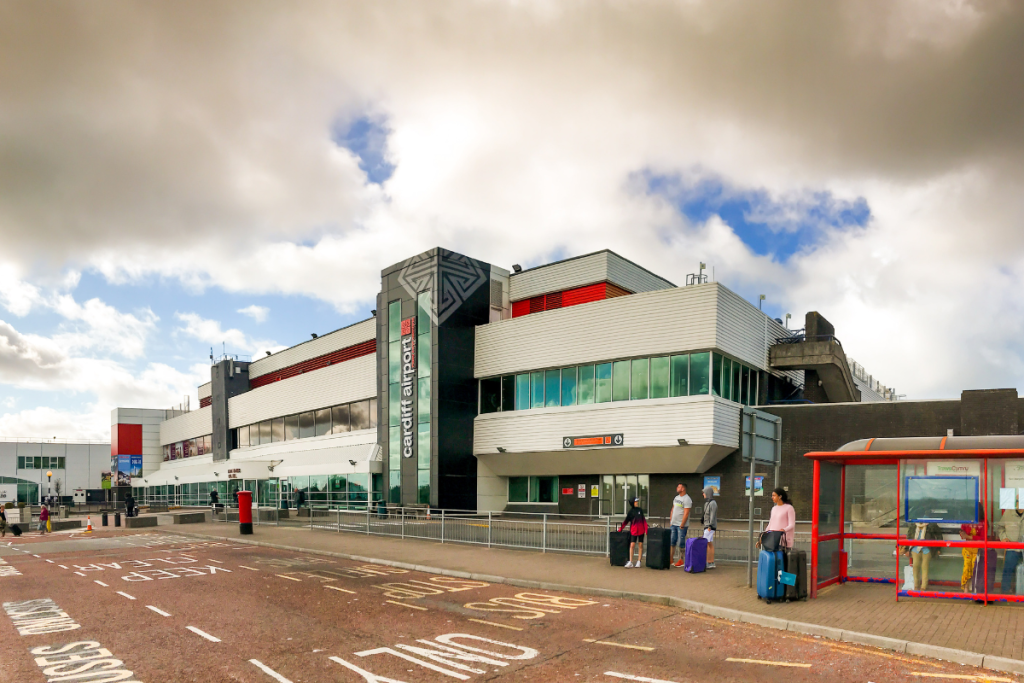Business
Dividend Yields and Market Volatility: What You Need to Know

Introduction
Dividend yields and market volatility are crucial elements in the investment landscape. Dividend yields represent the return on investment from dividends paid by stocks, while market volatility reflects the fluctuations in asset prices. Understanding how these two factors interact can help investors navigate uncertain market conditions and make informed investment decisions. To better understand these concepts and improve your investment strategies, seeking guidance from an investment education firm like Immediate GPT can be highly beneficial.
Understanding Dividend Yields
Dividend yield is a financial ratio that shows how much a company pays out in dividends each year relative to its stock price. It is calculated as the annual dividend per share divided by the stock price per share. For instance, if a company pays $4 in annual dividends and its stock price is $100, the dividend yield is 4%.
Historically, high dividend yields have been attractive to investors seeking income, especially during periods of low interest rates. Companies that offer high dividend yields are often mature and financially stable, providing a steady income stream even in volatile markets.
The Nature of Market Volatility
Market volatility refers to the degree of variation in the price of financial instruments over time. It is commonly measured using the VIX index, which reflects the market’s expectations of future volatility based on options prices.
Volatility can stem from various sources, including economic data releases, geopolitical events, and changes in investor sentiment. High volatility can lead to significant fluctuations in stock prices, affecting both the value of investments and the predictability of dividend payments.
How Market Volatility Affects Dividend Yields
Market volatility can impact dividend yields in several ways. During periods of high volatility, companies may face financial challenges that lead them to cut or suspend dividend payments. This is often the result of declining revenues or increased costs. For example, during the 2008 financial crisis, many companies reduced or eliminated their dividends due to severe economic downturns.
Conversely, companies with strong balance sheets and consistent earnings are better positioned to maintain their dividend payouts even amid market turbulence. For instance, established firms in sectors like utilities and consumer staples often continue paying dividends during volatile periods because of their stable cash flows.
Strategies for Investing in Dividend Stocks During Volatile Periods
To mitigate the risks associated with market volatility, investors should consider the following strategies:
- Diversification: Spread investments across various sectors and asset classes to reduce exposure to any single economic event or market fluctuation. Diversification can help cushion the impact of volatility on a portfolio.
- Quality Stocks: Focus on companies with robust financial health and a history of reliable dividend payments. Look for firms with strong earnings, low debt levels, and a track record of maintaining dividends during economic downturns.
- Dividend Funds and ETFs: Consider investing in dividend-focused mutual funds or exchange-traded funds (ETFs) that hold a diversified portfolio of dividend-paying stocks. These funds offer professional management and diversification, reducing the risk associated with individual stock investments.
The Role of Dividend Stocks in a Diversified Portfolio
Dividend stocks play a vital role in a diversified investment portfolio. They provide a source of income through dividends, which can be particularly valuable during market downturns. This income can help offset capital losses and provide a more stable overall return.
In addition to income, dividend stocks can also offer potential for capital appreciation. By including dividend stocks in a broader asset allocation strategy, investors can achieve a balance between income and growth, mitigating the effects of market volatility on their portfolios.
The Impact of Interest Rates on Dividend Yields and Market Volatility
Interest rates and dividend yields are closely linked. When interest rates rise, bond yields become more attractive compared to dividend yields, leading to potential declines in stock prices. Conversely, in a low-interest-rate environment, dividend stocks often become more appealing, driving up their prices and yields.
Interest rates also affect market volatility. Higher rates can increase borrowing costs for companies, potentially impacting their earnings and dividend payments. This, in turn, can contribute to greater market volatility. Conversely, low rates can reduce market volatility by lowering borrowing costs and supporting economic growth.
Long-Term Considerations and Investment Horizon
Dividend investing typically benefits from a long-term perspective. Short-term market volatility can impact dividend yields and stock prices, but over the long run, high-quality dividend stocks often demonstrate resilience and growth. Investors should focus on their long-term investment goals and avoid making hasty decisions based on short-term market fluctuations.
Historically, dividend-paying stocks have provided steady returns and played a key role in long-term wealth accumulation. By maintaining a long-term view and focusing on companies with solid fundamentals, investors can weather market volatility and benefit from the income and growth potential of dividend stocks.
Expert Opinions and Predictions
Financial experts often highlight the importance of focusing on the quality of dividend-paying stocks rather than reacting to short-term market movements. They suggest that investors should prioritize companies with strong fundamentals and a commitment to returning value to shareholders.
Looking ahead, experts predict that market volatility will remain a feature of the investment landscape due to ongoing economic and geopolitical uncertainties. However, dividend stocks are expected to continue playing a significant role in investment portfolios, offering both income and potential for capital appreciation.
Conclusion
Dividend yields and market volatility are interconnected aspects of the investment world. While market volatility can affect dividend payments and stock prices, understanding their relationship and employing strategies to manage risks can help investors navigate uncertain markets. By focusing on high-quality dividend stocks, diversifying investments, and maintaining a long-term perspective, investors can successfully integrate dividend yields into their overall investment strategy and achieve their financial goals.
Business
Cardiff airport investment under fire as Qatar link stalls despite £400m public backing

Ministers admit no meetings with airline that once received Welsh Government marketing support
THE FUTURE of Cardiff Airport’s long-haul ambitions has been thrown back into the spotlight after Welsh ministers admitted they have not personally met Qatar Airways executives — despite the airline once operating the airport’s flagship international route and benefiting from a publicly funded marketing partnership.
The admission has prompted fresh questions over whether taxpayers are getting value for the almost £400 million of public money that has been invested in the airport since it was bought by the Welsh Government in 2013.
South Wales Central Conservative MS Andrew RT Davies said the lack of direct engagement was “unacceptable”, arguing that ministers had failed to prioritise restoring one of Wales’ most important global connections.
In written questions to Economy Minister Rebecca Evans and Transport Minister Ken Skates, he asked how many times they had met Qatar Airways since August 2024.
Both confirmed they had not held any meetings.
Ms Evans said commercial negotiations are led by the airport’s executive team and added she would “very much welcome” the route’s return when the time is right.
Mr Skates said responsibility for the airport sits outside his portfolio and declined to comment further while discussions are ongoing.

Flagship route
Qatar Airways launched daily flights between Cardiff and Doha in 2018 to considerable fanfare.
At the time, ministers described the service as “transformational”, linking Wales directly to one of the world’s biggest aviation hubs and providing one-stop access to more than 150 destinations across Asia, Australia, Africa and the Middle East.
Business groups said the route would make Wales more attractive to inward investors and exporters, while tourism chiefs hoped it would bring higher-spending international visitors.
To promote the link, the Welsh Government entered into a two-year marketing partnership with the airline, understood to be worth around £1 million, aimed at raising Wales’ profile overseas and encouraging travel through Cardiff.
The agreement funded joint advertising and promotional campaigns in international markets.
However, the route operated for less than two years before being suspended at the start of the Covid-19 pandemic in 2020.
While Qatar Airways has since restored flights to other UK airports including Heathrow, Manchester and Birmingham, Cardiff remains the only former UK destination where services have not resumed.

Value for money questions
The situation has reignited debate over whether the public investment delivered lasting benefits.
Critics say the combination of direct airport funding and marketing support should have secured a more sustainable presence from a global carrier.
They question whether the advertising partnership represented value for money if the route ultimately disappeared and has yet to return.

For some observers, the absence of Qatar has become a yardstick for judging the success of government ownership.
After more than a decade and hundreds of millions of pounds in loans and support, they argue, Wales should be seeing stronger international connectivity rather than retreat.
Supporters counter that the pandemic severely disrupted aviation worldwide and that rebuilding routes takes time, particularly for smaller regional airports.
They also note that commercial airline negotiations are typically handled by airport management rather than ministers.

Passenger recovery
Cardiff Airport was purchased by the Welsh Government for £52m to prevent its closure and safeguard jobs.
Since then it has required repeated financial support packages to maintain operations and invest in infrastructure.
Passenger numbers remain below pre-pandemic levels, and the airport continues to compete with Bristol, which offers a far wider range of routes and attracts many Welsh travellers across the border.
Industry analysts say long-haul services such as Doha are especially important because they connect regions directly to global markets without relying on London hubs.
Without them, airports risk being seen as secondary or feeder operations.
Political pressure
Mr Davies said the government needed to show greater urgency.
“Senedd ministers have ploughed almost £400 million into Cardiff Airport since they bought it – yet they haven’t even bothered to meet with a major airline to re-establish a crucial international link,” he said.

“When that level of public money is involved, people expect leadership.
“Getting flights back should be a priority.”
The Welsh Government maintains it remains supportive of restoring the route and says talks with Qatar Airways are continuing through airport executives.
But for many travellers and businesses, the key question remains simple: after years of investment and promises, when will Wales once again have a direct long-haul link to the world?
Until Qatar — or another global carrier — returns, critics say, that question will continue to hang over Cardiff Airport’s future.
Business
Croeso awards return to celebrate Pembrokeshire’s tourism stars

Colin Jackson to host major industry night as entries open for 2026 event
THE CELEBRATION of Pembrokeshire’s tourism and hospitality sector is officially underway as the Visit Pembrokeshire Croeso Awards return for 2026 after a two-year break.

The prestigious awards, designed to recognise businesses that go above and beyond to deliver exceptional visitor experiences, are back with what organisers describe as “fresh energy and renewed ambition”.
This year’s ceremony will be hosted by Welsh sporting legend Colin Jackson CBE, the Olympic silver medallist and former world champion hurdler, who will act as compère for the evening.
The awards will take place on Thursday (Oct 29), bringing together leading hotels, attractions, restaurants and tourism operators from across the county for a night of celebration and recognition.

Seventeen categories are open for entry, including Best Hotel, Best Place to Eat, Accessible & Inclusive Tourism Award and Rising Star, highlighting both established operators and emerging talent within the industry.
Organisers say the event is not only about rewarding excellence, but also about developing the next generation of hospitality professionals.
At the heart of this year’s ceremony is a partnership between Pembrokeshire College and the Celtic Collection. Students will gain hands-on experience in staging a live, large-scale event, working alongside front-of-house teams and industry specialists to plan and deliver the evening.
The collaboration aims to give young people practical skills while supporting the long-term future of the county’s tourism sector.
Emma Thornton, Chief Executive of Visit Pembrokeshire, said: “We are very excited to be launching our 2026 Croeso Awards building on our 2024 event through working in partnership with Pembrokeshire College and the Celtic Collection.
“We’ve taken the deliberate step to launch three months earlier than in previous years. By doing so we hope this will encourage more entries, making it much easier for businesses and organisations to submit entries well ahead of the busy spring and summer season.
“If you haven’t entered the Croeso Awards before, please make this the year that you do.”
Applications are now open via the Croeso Awards pages on the Visit Pembrokeshire website and close on Monday (March 31). The shortlist will be announced on July 1.
Support sessions to help businesses complete applications will be held every Wednesday throughout February at the Bridge Innovation Centre in Pembroke Dock.
Tickets and a limited number of sponsorship opportunities are also available.
Photo caption:
Colin Jackson CBE will host the 2026 Croeso Awards when they return this October (Pic supplied).
Business
Welsh business confidence falls sharply in January

BUSINESS confidence in Wales fell by twenty points in January, according to the latest Business Barometer from Lloyds Bank, amid weakening optimism about both trading conditions and the wider economy.
The headline confidence figure for Wales dropped to 32%, down from 52% in December 2025. Firms’ confidence in their own trading prospects fell even more steeply, down thirty points to 38%, while optimism about the wider economy declined by eight points to 27%.
Despite the downturn in sentiment, Welsh businesses reported stronger hiring intentions. A net balance of 44% of firms said they expect to increase staff numbers over the next twelve months, up twenty-four points on the previous month.
Looking ahead, businesses in Wales identified their main priorities for growth over the next six months as developing new products or services (43%), investing in staff training and skills (40%), and introducing new technology (33%).
The Business Barometer surveys around 1,200 businesses across the UK each month and has been running since 2002, providing early indicators of regional and national economic trends.
UK outlook mixed
Across the UK as a whole, business confidence slipped by three points in January to 44%. While firms’ confidence in their own trading prospects increased by seven points to 59%, optimism about the wider economy fell sharply, down fourteen points to 28%.
London recorded the highest confidence level of any UK nation or region at 68%, followed by Northern Ireland at 66% and the West Midlands at 65%.
Sector picture
Retail confidence edged up slightly in January, rising by two points to 49%. Confidence in the service sector increased by one point to 42%, marking the first rise since the summer. Construction confidence, however, fell back after a particularly strong improvement in December.
Nathan Morgan, area director for Wales at Lloyds, said the figures reflected ongoing economic pressures but highlighted some positive signals.
“Business confidence has reduced this month, reflecting wider economic headwinds,” he said. “However, hiring intentions are up sharply, with Welsh businesses planning to invest in people at scale, showing a real commitment to growth despite the challenges.”
Hann-Ju Ho, senior economist at Lloyds Commercial Banking, said firms were entering the year with confidence in their own trading prospects, even as concerns about the broader economy persisted.
“The first rise in confidence in the services sector in seven months is encouraging, given the sector’s central role in supporting UK economic activity,” she said.
-

 Health4 days ago
Health4 days agoConsultation reveals lack of public trust in health board
-

 News5 days ago
News5 days agoCaldey still unsafe, survivors warn — despite Abbey’s reform claims
-

 Community5 days ago
Community5 days agoPembrokeshire students speak at national Holocaust Memorial Day event
-

 Local Government7 days ago
Local Government7 days agoTribunal over former Neyland councillor’s conduct adjourned
-

 News5 days ago
News5 days agoKurtz raises Gumfreston flooding in the Senedd as petition deadline nears
-

 Entertainment6 days ago
Entertainment6 days agoRapunzel brings festive magic to Torch Theatre
-

 Education5 days ago
Education5 days ago‘Vulnerable teen’ questioned by police at Milford Haven School
-

 Crime6 days ago
Crime6 days agoMan denies murdering brother as jury hears of ‘ferocious attack’ at Morriston flat















